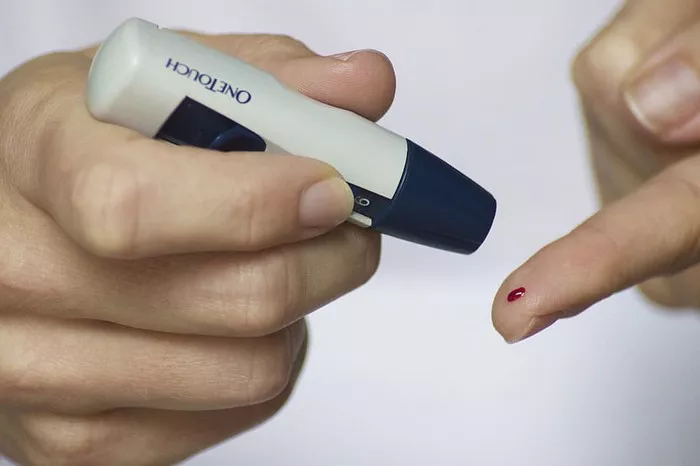Insulin resistance is a condition where cells in the body become less responsive to the effects of insulin, leading to elevated blood sugar levels. Exercise is widely recognized as a cornerstone of diabetes management due to its ability to improve insulin sensitivity and promote glucose uptake by muscles. However, there is a fine line between beneficial exercise and overexertion, which can have adverse effects on insulin resistance and overall health.
Exercise and Insulin Sensitivity
Regular physical activity has long been touted for its positive effects on insulin sensitivity. When muscles contract during exercise, they increase their demand for glucose, prompting cells to become more responsive to insulin. This enhanced insulin sensitivity allows glucose to be more efficiently transported from the bloodstream into cells, where it is utilized for energy production. Consequently, exercise helps lower blood sugar levels and improves overall metabolic health, making it a crucial component of diabetes management.
The Concept of ‘Too Much’ Exercise
While exercise is beneficial for insulin sensitivity, there is a point at which the benefits plateau or even reverse. What constitutes “too much” exercise varies among individuals and depends on factors such as fitness level, age, health status, and exercise intensity. Overtraining or excessive exercise refers to pushing the body beyond its capacity to recover, leading to negative physiological responses and potential health consequences.
Potential Risks of Over-Exercising
Excessive exercise can pose several risks to insulin sensitivity and overall health:
Hormonal imbalance: Intense or prolonged exercise can disrupt hormone levels, including cortisol and adrenaline, which may impair insulin sensitivity and increase blood sugar levels.
Inflammation: Excessive exercise can trigger inflammation in the body, contributing to insulin resistance and chronic diseases such as type 2 diabetes and cardiovascular disease.
Muscle damage: Overtraining can lead to muscle damage and breakdown, impairing glucose uptake by muscles and exacerbating insulin resistance.
Immune suppression: Intense exercise can suppress the immune system, making individuals more susceptible to infections and illnesses that can further impact metabolic health.
Research Findings
While regular exercise is known to improve insulin sensitivity, research on the effects of excessive exercise on insulin resistance is limited and inconclusive. Some studies suggest that extreme endurance exercise, such as marathon running or ultra-endurance events, may temporarily increase insulin resistance due to prolonged stress on the body. However, more research is needed to fully understand the long-term implications of excessive exercise on insulin sensitivity and metabolic health.
Expert Opinions
Endocrinologists and sports medicine experts caution against excessive exercise and emphasize the importance of balance and moderation in physical activity. They advise individuals to listen to their bodies, prioritize rest and recovery, and avoid pushing themselves to the point of exhaustion.
A balanced approach to exercise involves incorporating a variety of activities, including aerobic exercise, strength training, flexibility exercises, and restorative practices such as yoga and meditation. It also entails paying attention to exercise intensity, duration, and frequency to avoid overtraining and promote overall well-being.
Recommendations
For individuals concerned about insulin resistance or diabetes management, it is essential to adopt a personalized approach to exercise. Here are some practical recommendations:
Consult with healthcare professionals:Seek guidance from healthcare providers, including primary care physicians, endocrinologists, or certified diabetes educators, to develop a safe and effective exercise plan tailored to individual needs and health goals.
Start gradually: Begin with low to moderate-intensity exercises and gradually increase intensity and duration over time to avoid overexertion.
Listen to your body: Pay attention to signs of fatigue, pain, or excessive soreness and adjust your exercise routine accordingly. Allow for adequate rest and recovery between workouts.
Focus on variety: Incorporate a mix of cardiovascular, strength, and flexibility exercises into your routine to promote overall fitness and prevent overuse injuries.
Monitor blood sugar levels: Monitor blood sugar levels before, during, and after exercise to understand how different activities affect glucose levels and adjust insulin or medication doses as needed.
Stay hydrated and fuel properly: Drink plenty of water before, during, and after exercise to stay hydrated, and consume a balanced diet rich in carbohydrates, proteins, and healthy fats to support energy production and muscle recovery.
Conclusion
Exercise plays a crucial role in improving insulin sensitivity and managing insulin resistance, but finding the right balance is key. While regular physical activity offers numerous health benefits, excessive exercise can have adverse effects on insulin resistance and overall well-being. By adopting a balanced approach to exercise, seeking guidance from healthcare professionals, and listening to their bodies, individuals can safely and effectively manage insulin resistance and optimize their metabolic health.
Related Topics:
How To Help With Insulin Resistance?



























